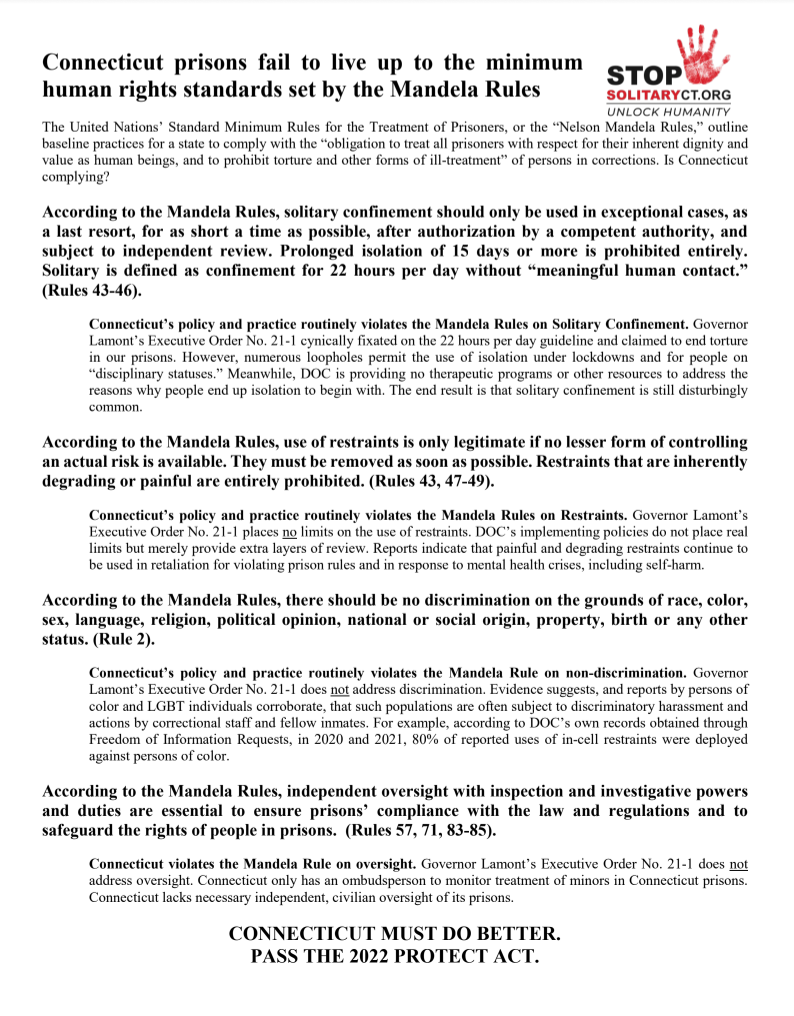One-Page Briefers
Why Connecticut Prisons Still Violate the Mandela Rules
The United Nations’ Standard Minimum Rules for the Treatment of Prisoners, or the “Nelson Mandela Rules,” outline baseline practices for a state to comply with the “obligation to treat all prisoners with respect for their inherent dignity and value as human beings, and to prohibit torture and other forms of ill-treatment” of persons in corrections. This one-pager explains why Executive Order 21-1 fails to bring Connecticut prisons in line with the Mandela Rules.
Alternatives to Torture: The Truth Behind the PROTECT Act
Correctional systems around the country are realizing that prosocial activity, treatment, and other alternative approaches are both more humane and more effective than isolation, in-cell restraints, and other forms of punishment at ensuring safety among incarcerated people and correctional staff. This one-pager outlines alternatives to solitary confinement that have been successfully implemented in other states.
The Road to Prison Oversight in Connecticut
The recent history of Connecticut’s prisons shows the dangers of vesting unchecked power in society’s most hidden and least democratic spaces. After the ombudsman’s office was dismantled in 2010, the DOC has repeatedly resorted to inhumane methods of control and punishment. This one-pager gives a brief history of prison oversight in Connecticut—and of the abuses that have taken place after it has ceased to exist.
Myth Busters: Separating Fact from Fiction in the PROTECT Act
During this year’s public hearing for the PROTECT Act (SB 459), several false claims were made about the nature of solitary confinement in Connecticut. This one-pager debunks some of those claims and sets the record straight about SB 459 and the use of solitary confinement in Connecticut.




